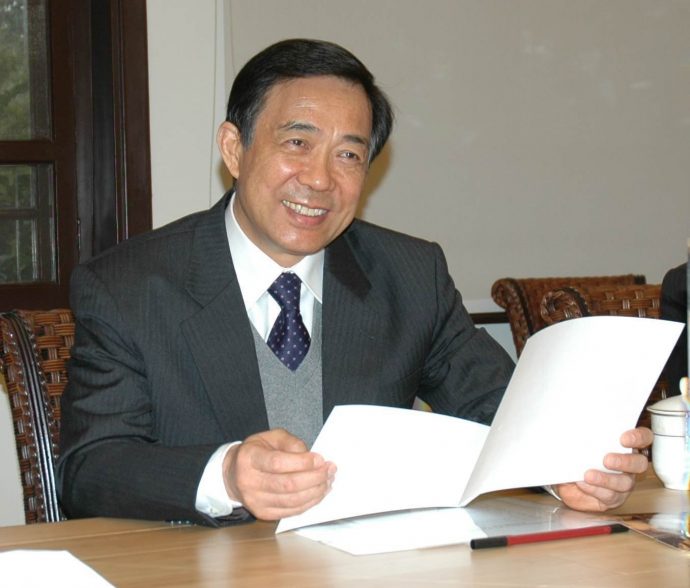China’s President Xi Jingping’s ongoing anti-corruption campaign against fraudulent power brokers has persisted now for more than a year. In carrying out the most significant purge in a generation, Xi has fulfilled his promise to bring down both “tigers” and “flies” (corrupt officials, high and low).
China’s fiercest “tiger,” Zhou Yongkang, was shot down last month. He tops a long list of fallen senior politicians – beginning with Chongqing’s popular mayor and party secretary, Bo Xilai, and including Xu Caihou, China’s No. 2 military man. There is also speculation that Xi is using his high-profile anti-corruption campaign to tighten his grip by removing his political opponents and consolidating power. It was apparent that Xi Jingping felt that Bo Xilai’s faction was a challenge to his own faction for control of the ultimate ruling body, the Standing Committee of the Politburo. Zhou Yongkang was a key supporter of Bo Xilai and argued against bringing him down. The result was a serious rift in China’s highest leadership.
Zhou’s fall has been as meteoric as his rise. In the month leading up to his detention, dozens of top officials in all Zhou’s former power bases came under investigation. Since the start of the purge, more than 200,000 officials have been punished. Some have committed suicide.
In terms of sheer power, no one compared to Zhou Yongkang, who was arguably the most feared man in China. He was not only a former member of the Standing Committee but was chief of China’s police force, court system and paramilitary forces. The sum of money allegedly appropriated by his family is a record-breaker. The Chinese media reported that Zhou’s family members amassed huge fortunes through a complicated network created by those who owed their jobs to Zhou’s patronage. A Reuters report claimed that Chinese authorities had seized assets worth at least 90 billion yuan ($14.6 billion U.S.). The exposure of the business empire established by Zhou’s family reveals how close the relationship between money and power has gotten in the highest echelons of the Communist Party.
Many top executives and politicians, including President Xi Jingping, are members of the Crown Prince Party, a quasi-clique of politicians whose lineage helps them wield influence in politics and business. Ironically, these so-called “princelings” are descendants of the original revolutionaries who once fought with the Communists against Chiang Kai-shek’s Nationalist regime.
In a recent speech, Xi warned that those seeking official position should not simultaneously be seeking riches. He admitted that the party’s own lax supervision of the behavior of its own members has allowed careerists, game-players and would-be billionaires to dictate how the country is run.
Lack of transparency in real estate
At the same time, China’s State Council launched an initiative requiring local governments in the provinces to regulate the country’s real estate market more effectively. The guidelines demanded that local cadres work out their own “detailed rules for implementation,” while capping housing prices in their jurisdictions. This triggered a sudden rush in real estate transactions as home buyers and owners panicked in anticipation of a massive tax hike. The State Council’s failure to hold local cadres accountable for the implementation of its own policies lies in the lack of transparency in this fiscal chain. Both budgets and subsidies are agreed on behind closed doors. Local cadres have been lax in explaining where central (federal) funds go. Instead of being defined by law, they are subject to power negotiations. China’s local officials are appointed, not elected, so they are not held accountable to the public. Therefore corruption is rampant. Local officials often adopt an opportunistic approach when dealing with central funding for the appropriation of land for development.
China’s rural population contributes 10 percent of the national GDP. By transferring the peasants into China’s ballooning cities, the government hoped to boost both rural productivity and the declining urban labor force. From 1990 to 2012, 250 million farmers were coerced into leaving their ancestral homes to become migrant workers in the cities. Many are still denied access to most urban public services, including schools for their children. The homesteads they leave behind are rapidly possessed by government-led land appropriation and sold to private investors so the former peasants can never go home again. State and private companies invested in cheap apartment buildings to house the rural migrants, but most peasants refused or could not afford to move in. Thousands of high, hulking gray buildings, with “For Sale” signs in red characters hanging from dark windows, now stand hauntingly empty in the suburbs of many cities as dismal reminders of the failure of the powerful state sector and a predatory real estate industry. Both have reaped rich rewards from China’s state-directed distortion of the urbanization process and left thousands of migrant workers in dire straits.
Consumerism versus communism
Grumbling has surfaced in China’s vast bureaucracy. Some claim the major reason behind this distorted value system is the collapse of the ideologies of egalitarianism and class struggle that were required of officials during the Mao period. Others reflect on how the value system has been confused since 1980 when Deng Xiaoping coined his historic proclamation, “To get rich is glorious” and sanctioned a partial free consumer market economy. Short of effective supervision, many executives and politicians seized both power and money as their exclusive domain. The main assertion today is that too many top officials, like their ancestors in Imperial China, chose to become “public servants” not to “serve the people” but to become rich, with successive generations seeing the mass accumulation of wealth as an inherent feature of an official post.
Some Chinese philosophers speculate that the underlying cause of China’s distorted value system is the supplanting of communism with consumerism as the de facto belief system of the nation. Material acquisition is perceived as the sole measure of success, whether one is an official, an entrepreneur or a worker. As an editorial in a recent New China magazine warned: “For the anti-corruption campaign to have a long term impact on China’s officials, the central leadership needs to re-establish some kind of value system … despite the collection of a few high-profile scalps, governing seems like business as usual to a skeptical public.”
Some intellectuals believe that Chinese leadership could draw upon the ancient value systems common to China. Traditional values are considered outmoded, except for the family clan code, “what’s your is mine,” but some core principles of archaic schools of thought continue to have relevance. Confucius, for example, advocated governing by virtue. He argued that bureaucrats should be at a higher level of moral conduct than ordinary people and urged civil servants to keep out of commerce, lest the pursuit of wealth blind them to their responsibilities as moral examples to the masses.
In an era of global financial crises, business performance in China falls short of expectations. In a survey by the European Union Chamber of Commerce in China nearly half the multinational companies surveyed believe the “golden age” of doing business in China is already over.
The challenge for China today is getting party members to disembark en masse from a four-decade free ride on China’s gravy train. Even Xi Jingping seems to see Zhou’s arrest as a point of no return. His strategy raises many questions. Will his exposure of a quarreling, materialistic and divided leadership backfire or unify? Where this road leads will depend on whether or not the president’s professed “China Dream” of a unified, prosperous single nation under the law is a genuine legal reform, which seems to be the only solution. He recently promised that the government will strive to create a system in which government officials will be “unwilling, incapable and afraid” of becoming corrupt. This is something we could all strive for.




